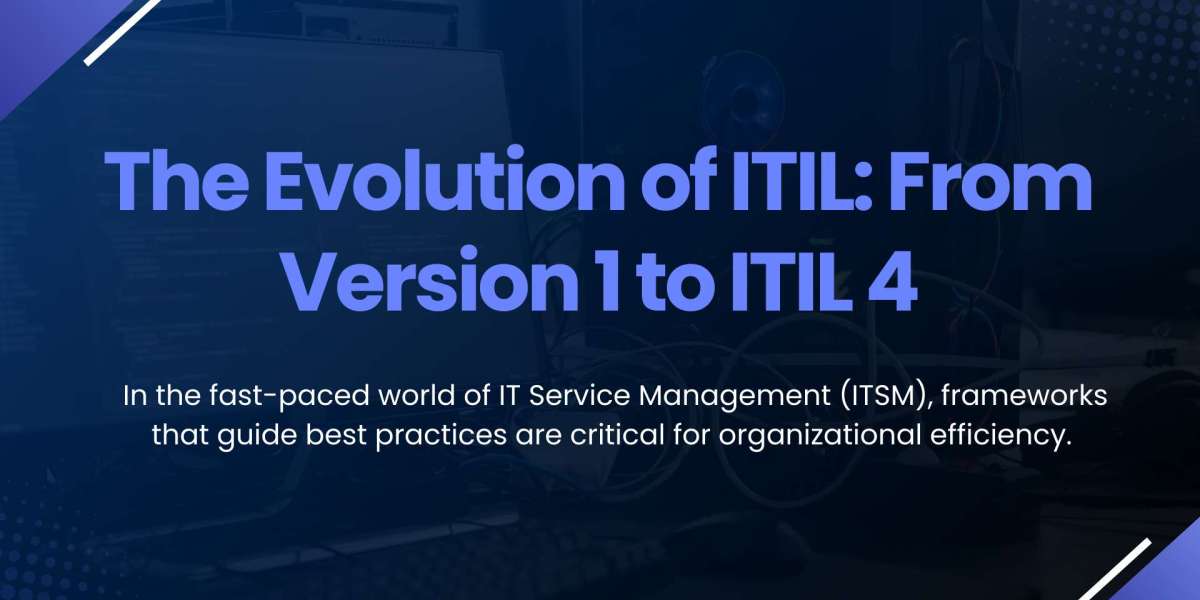In the fast-paced world of IT Service Management (ITSM), frameworks that guide best practices are critical for organizational efficiency. One such globally recognized framework is ITIL, which has undergone significant evolution since its inception. Understanding this journey highlights the importance of modern ITIL Certification for IT professionals seeking to enhance their careers.
ITIL Version 1 and 2: Establishing the Foundation
The IT Infrastructure Library (ITIL) was first introduced in the 1980s by the UK Government’s Central Computer and Telecommunications Agency (CCTA). ITIL Version 1 focused on documenting a comprehensive set of best practices for IT service management. Although rudimentary by today’s standards, it laid the groundwork for standardizing IT processes across organizations.
ITIL Version 2 emerged in the late 1990s, refining processes and introducing a more structured approach. This version emphasized service support and service delivery, enabling organizations to improve efficiency, reduce costs, and increase customer satisfaction. ITIL Version 2 was a major step forward and became the foundation for many ITIL Certification programs available today.
ITIL Version 3: Lifecycle Approach
In 2007, ITIL Version 3 (later revised in 2011) introduced the concept of the service lifecycle. Unlike earlier versions, which focused on individual processes, ITIL Version 3 offered a holistic approach encompassing five lifecycle stages: Service Strategy, Service Design, Service Transition, Service Operation, and Continual Service Improvement. This lifecycle model encouraged organizations to view IT services not just as individual components but as integrated elements aligned with business objectives. ITIL 4 Certification candidates often explore these concepts to gain a deeper understanding of ITSM principles.
ITIL 4: Adapting to the Modern IT Landscape
The most significant evolution came with ITIL 4, launched in 2019. ITIL 4 addresses the challenges of modern digital enterprises, emphasizing agility, DevOps, and value co-creation. It integrates traditional ITSM practices with contemporary methodologies, making it highly relevant for organizations adopting cloud computing, automation, and AI-driven solutions. The ITIL 4 Foundation course is now the entry point for professionals seeking to understand these updated practices, focusing on guiding principles, the Service Value System (SVS), and the four dimensions of service management.
Why ITIL Certification Matters
Obtaining an ITIL Certification, particularly the ITIL 4 Certification, demonstrates a professional’s commitment to understanding industry-standard best practices. The ITIL 4 Foundation equips candidates with knowledge to navigate the complexities of modern IT operations, making them valuable assets in any organization. Understanding the differences in ITIL v3 vs ITIL v4 is crucial for IT professionals, as it highlights the evolution of practices and methodologies that support digital transformation. This certification enhances career prospects, supports professional growth, and positions individuals at the forefront of IT service management innovation.
Conclusion
The journey of ITIL from Version 1 to ITIL 4 reflects its continuous evolution to meet the changing needs of technology and business. By earning an ITIL Certification, particularly the ITIL 4 Foundation, professionals not only gain a comprehensive understanding of ITSM but also align themselves with the future of digital enterprise management.



